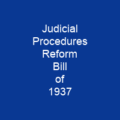What is an Arrest and Why Does It Matter?
An arrest is more than just taking someone into custody; it’s a pivotal moment in the criminal justice system, often marked with tension and uncertainty. Have you ever wondered what happens when law enforcement steps in to apprehend a suspect? The process of an arrest involves much more than just stopping someone – it’s about ensuring that justice is served while protecting individual rights. Let’s dive into the intricacies of this procedure and explore its significance.
Understanding the Basics
In many places, anyone can make an arrest if they witness a crime or suspect wrongdoing. However, in most jurisdictions, it’s typically law enforcement officers who carry out arrests with the backing of police powers. The key here is probable cause, which means there must be reasonable grounds to believe that a person has committed a crime.
The Global Perspective on Arrests
Arrest procedures vary widely across different countries, each with its own unique set of rules and regulations. For instance, in India, the process is relatively informal compared to the US, where there’s a clear distinction between arrests and detentions for minor crimes.
Terms and Procedures
The term ‘arrest’ itself has interesting origins, coming from French meaning “to stop or stay.” But slang terms can vary greatly. In Britain, you might hear someone say they were ‘nicked,’ while in the US and France, it’s common to be ‘collared.’ These terms add a layer of local flavor to what is essentially the same legal process.
Legal Requirements for an Arrest
In most countries, arrests must be made with justified reasons. Typically, this means there needs to be probable cause or a warrant issued by a judge. In California, for example, if no formal charges are filed within 48 hours, the accused must be released from custody.
Notifying the Arrestee
Once an arrest is made, it’s crucial to inform the person of their rights and the reasons for their arrest. In the UK, a person must be told in simple language that they are under arrest and given a caution statement. This ensures transparency and protects against abuse of power.
Miranda Rights: A U.S. Perspective
In the United States, after making an arrest, police must inform detainees of their Fifth Amendment and Sixth Amendment rights to ensure that any statements made during questioning can be used as evidence in court. This is known as a Miranda warning.
Search and Seizure Laws
Search and seizure laws also differ significantly between countries. In the UK, non-criminal arrests can be considered civil contempt of court, leading to potential warrants if there’s a breach of court order. Meanwhile, in the US, similar breaches can result in arrest without further order.
The Impact of an Arrest
While an arrest doesn’t always lead to a conviction, it can have serious ramifications for the individual involved. It might mean missing work, facing social stigma, or having legal obligations to disclose a prior arrest. These consequences highlight why understanding and respecting the rights during an arrest is so important.
Conclusion
The process of an arrest is complex yet essential in maintaining order and ensuring justice. Whether you’re witnessing one or experiencing it firsthand, knowing your rights and understanding the legal procedures can make all the difference. After all, every arrest is a moment that could change someone’s life – for better or worse.

You want to know more about Arrest?
This page is based on the article Arrest published in Wikipedia (retrieved on March 11, 2025) and was automatically summarized using artificial intelligence.





